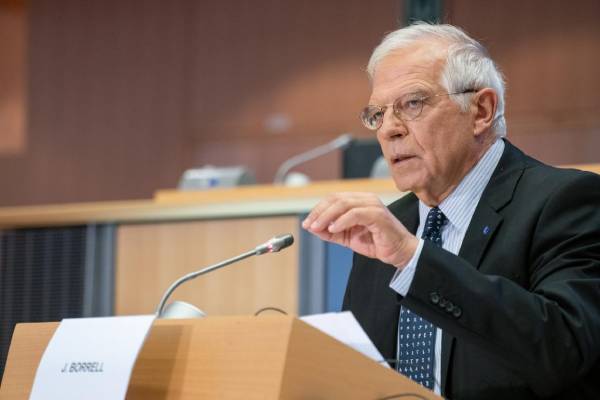Scalise says SALT talks already kicking off
House Majority Leader Steve Scalise said that Republicans were negotiating on Tuesday over how to accommodate concerns about the state and local tax deduction that could be an obstacle to a sweeping tax package next year. “We need to address this problem,” said Scalise (R-La.) of the contingent of House Republicans from California, New Jersey and New York who have been adamant about lifting the $10,000 cap on the deduction for state income and property taxes, known as SALT in tax parlance. “They’re coming back.” A spokesperson for Scalise did not immediately respond to a request about which lawmakers were participating in the meetings. The early negotiations signal just how challenging House Republican leadership expects it to be to muster the votes for an anticipated reconciliation bill next year, which could be passed without Democratic support. Republicans want to use the legislation to extend trillions of dollars in expiring tax cuts that President-elect Donald Trump and his allies in Congress pushed through in 2017, during Trump’s first term. And the most difficult part for leadership promises to be those pro-SALT Republicans, who held up a tax package earlier this spring over demands that it include some form of relief from the cap. The limit was imposed to offset some of the cost of the 2017 cuts – and ding blue states that have high taxes. Tuesday morning, Rep. Michael Lawler (R-N.Y.) reaffirmed those demands, telling POLITICO that he’s made it “abundantly clear” that any future tax packages will need to address SALT. In remarks made at a panel hosted by the Business Roundtable and the American Petroleum Institute, Scalise said that he reminded incoming Senate Majority Leader John Thune (R-S.D.) that such demands from Republicans in high-tax states could be a significant challenge in the House. “I reminded him, because he wasn’t part of it last time around in the top leadership, that our challenge in the House is much different,” Scalise said. The Senate GOP “doesn’t have a single SALT state member. There’s five states that are really affected by SALT, and New York and New Jersey were the most vocal,” “We had over 30 members from those states,” Scalise said of 2017. “By the way we still have close to that today.” For now, negotiations over taxes are mired in an ongoing strategic debate over whether to do two reconciliation bills, addressing border and energy policies first and taxes later, or enact all of the Republicans’ policy priorities together. Still, there are plenty of Republicans who detest the idea of raising the SALT cap because they believe it unfairly benefits wealthy taxpayers in high-tax states. “We’ve got people on both ends, Republicans and Democrats who don’t like it,” said House Ways and Means committee member Kevin Hern (R-Okla.).
House Majority Leader Steve Scalise said that Republicans were negotiating on Tuesday over how to accommodate concerns about the state and local tax deduction that could be an obstacle to a sweeping tax package next year.
“We need to address this problem,” said Scalise (R-La.) of the contingent of House Republicans from California, New Jersey and New York who have been adamant about lifting the $10,000 cap on the deduction for state income and property taxes, known as SALT in tax parlance. “They’re coming back.”
A spokesperson for Scalise did not immediately respond to a request about which lawmakers were participating in the meetings.
The early negotiations signal just how challenging House Republican leadership expects it to be to muster the votes for an anticipated reconciliation bill next year, which could be passed without Democratic support. Republicans want to use the legislation to extend trillions of dollars in expiring tax cuts that President-elect Donald Trump and his allies in Congress pushed through in 2017, during Trump’s first term.
And the most difficult part for leadership promises to be those pro-SALT Republicans, who held up a tax package earlier this spring over demands that it include some form of relief from the cap. The limit was imposed to offset some of the cost of the 2017 cuts – and ding blue states that have high taxes.
Tuesday morning, Rep. Michael Lawler (R-N.Y.) reaffirmed those demands, telling POLITICO that he’s made it “abundantly clear” that any future tax packages will need to address SALT.
In remarks made at a panel hosted by the Business Roundtable and the American Petroleum Institute, Scalise said that he reminded incoming Senate Majority Leader John Thune (R-S.D.) that such demands from Republicans in high-tax states could be a significant challenge in the House.
“I reminded him, because he wasn’t part of it last time around in the top leadership, that our challenge in the House is much different,” Scalise said. The Senate GOP “doesn’t have a single SALT state member. There’s five states that are really affected by SALT, and New York and New Jersey were the most vocal,”
“We had over 30 members from those states,” Scalise said of 2017. “By the way we still have close to that today.”
For now, negotiations over taxes are mired in an ongoing strategic debate over whether to do two reconciliation bills, addressing border and energy policies first and taxes later, or enact all of the Republicans’ policy priorities together.
Still, there are plenty of Republicans who detest the idea of raising the SALT cap because they believe it unfairly benefits wealthy taxpayers in high-tax states.
“We’ve got people on both ends, Republicans and Democrats who don’t like it,” said House Ways and Means committee member Kevin Hern (R-Okla.).



